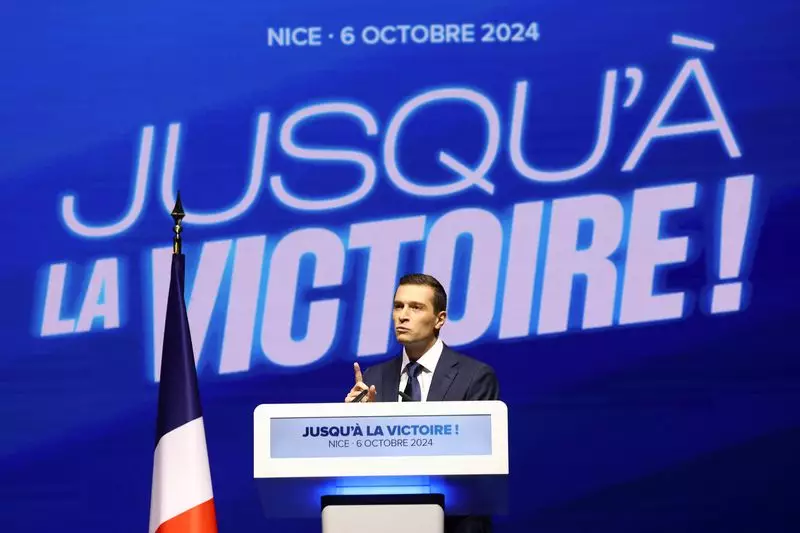The political landscape in France appears increasingly unstable as the far-right National Rally (RN) party, led by its president Jordan Bardella, considers backing a no-confidence motion against the government. This strong stance from the RN suggests that dissatisfaction with current governance is reaching a boiling point. As the threat of government collapse looms, it becomes essential to examine the underlying causes of this political deadlock.
With Prime Minister Michel Barnier at the helm, the government has faced mounting pressure from the RN, particularly concerning budgetary concerns. Bardella’s declaration on RTL radio highlights a sense of urgency: absent a “last minute miracle,” he indicated that the RN would initiate a no-confidence vote. This demand reveals a significant rift between the far-right party and the government. Barnier’s recent decision to abandon a planned electricity tax increase has not placated the RN, which insists on additional concessions such as raising pensions in accordance with inflation. The clash reveals deeper ideological divides regarding economic policy and fiscal responsibility.
Beyond pension adjustments, the RN is advocating for broader reforms, including the cancellation of proposed cuts to medication reimbursements and expressing concerns over a potential increase in gas taxes. Furthermore, the party calls for a reduction in France’s financial contribution to the European Union’s budget, highlighting its nationalistic stance against perceived excessive financial obligations to EU governance. This multifaceted list of demands underscores not only the RN’s discomfort with the current administration but also reflects a broader desire for significant policy changes that align with their voter base’s interests.
The escalating tensions could reach a critical juncture as early as Monday, with Barnier potentially using his powers to push through a contentious social security financing bill. Such a move could provoke a no-confidence vote, not only from the RN but also from factions on the left, signalling a potential fragmentation of governmental support. This intricate maneuvering in the National Assembly illustrates the precarious position of Barnier’s government, navigating between compliance to demands and maintaining parliamentary stability.
The broader economic implications of this political instability cannot be overstated. Government spokesperson Maud Bregeon expressed concern regarding the potential consequences of failing to establish a valid budget, emphasizing the urgency to avoid falling into financial disarray. The head of France’s public audit office, Pierre Moscovici, echoed these sentiments, characterizing the current financial state of the government as “dangerous.” As uncertainty looms, the attractiveness of France as a destination for foreign investment may be jeopardized, leading to long-term economic repercussions.
The mounting tensions between the National Rally and the Barnier-led government illuminate critical divides in French politics, particularly concerning fiscal policies. As the RN presses for substantial concessions and threatens a no-confidence motion, the ramifications of such political maneuvering may extend far beyond the walls of the National Assembly. France’s financial future hangs precariously in the balance, and all eyes will be on how this political drama unfolds in the coming days.

